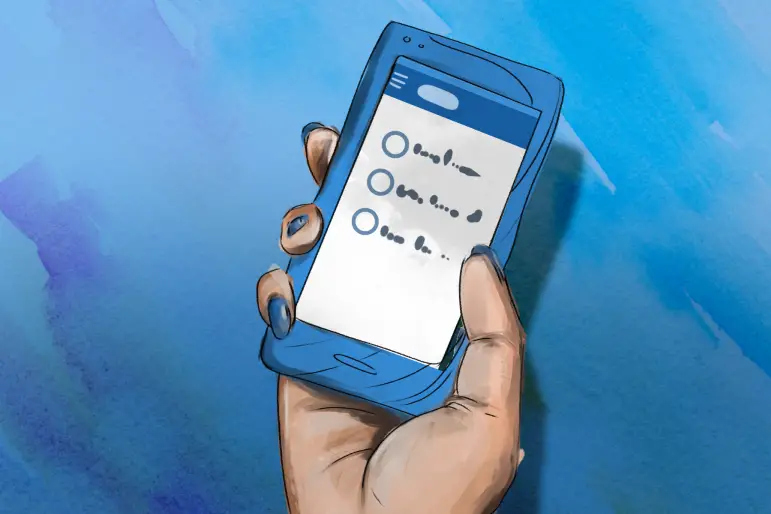Which ancient Greek girlboss am I? Which sad song will be my apocalypse anthem? What form of comfort do I seek? Those questions have been plaguing both my mind and my social media feeds in the past few months, and they all have introduced themselves through one channel: uQuiz quizzes.
uQuiz, originally created as a corporate survey solution, has recently become the favorite quiz-making tool for online communities of young people. In that sense, uQuiz is the first mainstream departure from the Millenial Online Quiz Industrial Complex. What can it tell us about the ways Gen Z uses the internet?
The Unlikely Success of uQuiz
uQuiz’s homepage still promotes the platform’s ability to “allow potential customers to engage with your brand.” The site itself offers a paid Pro Plan “for brands and marketers.” The site possibly never intended to become this popular with a niche sector of young users — yet it seems to be embracing its newfound role with relative ease. For example, it has recently created an active Tumblr account (Tumblr being the epicenter of the current quiz trend) where it shares memes and updates about the platform.
Still, while uQuiz’s success can be attributed to many of its features (it is free, and not too cumbersome to use), its spike in popularity can only be understood in the wider context of the history of personality quizzes.
From Magazine Quizzes to Quizilla
Personality quizzes have been a part of popular culture since at least the late 19th century. Journalist Sarah Laskow traces their origins in America to the time “when ladies’ magazines started gaining traction and the yellow press would try anything to sell papers.” Later, the personality quiz spiked in popularity during a quick magazine boom immediately post-WWII, which eventually led to the Cosmopolitan quizzes of the 1960s and ’70s.
The arrival of the internet made making and answering quizzes easier than ever. Though quizzes continued to appear in different parts of the web, the first website that acquired popularity exclusively for its quiz-making features was Quizilla, in 2002. As Julie Beck writes, the site was the original bastion of “What Kind of X Are You?” online quizzes, though it later also became an unlikely home for fiction, fan and otherwise. A couple of years later, Buzzfeed would revisit the form and deploy it as their primary source of clicks during the early 2010s.
Buzzfeed’s “endlessly viral tools for snapshot self-reflection” never really went away, but they have certainly waned in popularity compared to the days when a “What City Should You Actually Live In?” personality quiz could amass around 20 million views. By now, internet users should collectively be suffering some sort of quiz fatigue — and yet the genre keeps bringing forward new iterations. Why aren’t we tired of all this asking?
Let’s Talk About Ourselves
One answer to the continuous appeal of personality quizzes is that, at their most fun, they are a social activity. For Summer Anne Burton, a previous managing editorial director at Buzzfeed, quizzes have always been about sharing: Think about a teenage girl discussing the results of a magazine quiz with her friends, or the fandom users on Quizilla arguing about their Hogwarts house assignments. Quizzes allow users to share a snapshot of themselves with others, even if the snapshot is the answer to the question “what kind of cheese am I?”
Quizzes also satiate the human need for categorization. Identities and relationships are endlessly malleable: In the middle of this ambiguous landscape, quizzes provide a sort of insubstantial, transient certainty. Yet quizzes are not only ways of escaping the ambiguities of the self — they can also become ways of confronting them. These tests summarize the information you have given them and, in the process, can give you a better language for summarizing yourself. As MIT psychologist and cultural analyst Sherry Turkle put it, a personality quiz “gives people something to look at, an object to think with. [These] quizzes are a kind of focus for attentions and for thinking about yourself.”
Quizzes, Renewed
The current uQuiz trend seems to want to distance itself as much as possible from the previous Buzzfeed-dominated generation of online quizzes. While Buzzfeed tried to create a frictionless online quiz experience, uQuiz has a flat, almost outdated design. Buzzfeed made sharing one’s quiz results a seamless process that doubled as social performance and free marketing; in contrast, uQuiz eschews the sharing almost completely. Not only is the results-sharing process much less sophisticated than Buzzfeed’s, but there also seems to be a tacit agreement that getting too excited about one’s uQuiz results is kinda passé — a millennial trait, even.
Similarly, whereas Buzzfeed quizzes were mostly in the realm of the humorous and light-hearted, uQuizzes take themselves slightly more seriously. As a Tumblr user put it:
“why are uquiz results like ‘you’re so lonely that it’s killing you inside. you have a strong self-hatred that never goes away. nobody in your life has ever truly known you.’ like damn i just wanted to find out which type of bread i am”
Granted, not all uQuizzes are made equal. Some play up absurdist internet humor while others are explicitly made with the purpose of delivering a scorching roast; some work as handcrafted recommendation algorithms while others admit they are simply “100% fueled by vibes.” Even in those cases, uQuizzes seem to embrace the undercurrent of arbitrariness that characterizes online quizzes. That is, to me, what makes them so distinct from their predecessors. They are an example of users twisting a genre characterized by its artificiality in the hopes of finding, or creating, authenticity, community and fun.

















I love how you captured the fun and nostalgia of internet quizzes! They really are a delightful escape and a great way to connect with friends. I can’t help but get drawn in every time I see a new quiz pop up on my feed!
I absolutely loved this post! Internet quizzes have such a unique way of capturing our attention and sparking curiosity. It’s fascinating how they can offer a fun escape while also revealing insights about ourselves. Can’t wait to try more quizzes now! Great job highlighting their appeal!
I absolutely love how you captured the essence of internet quizzes! They really do transport us into a fun, engaging world where we can learn quirky facts about ourselves. The variety is endless, and it’s fascinating to see how people can connect over their results. Great read!